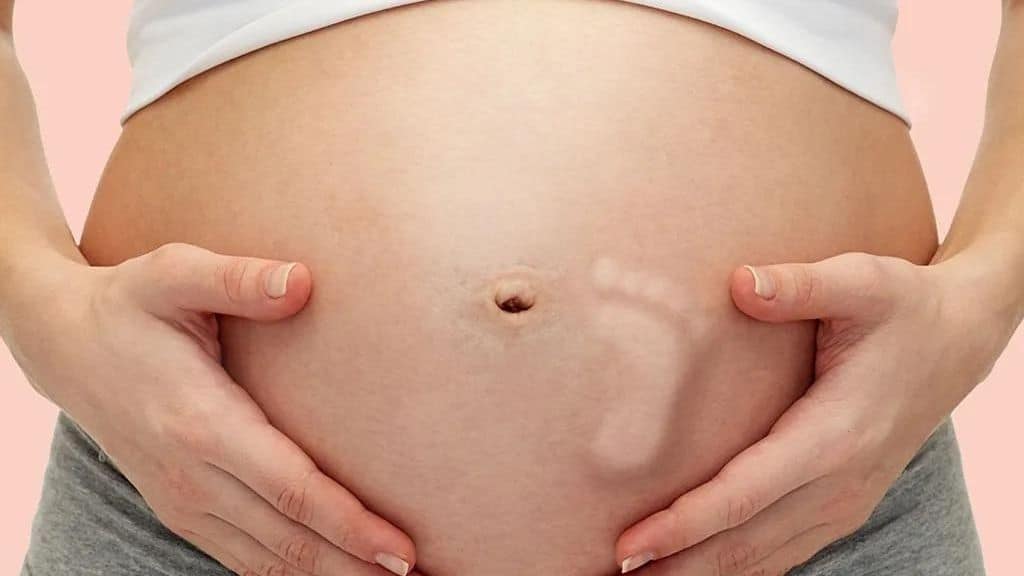
Table of Contents
As a pregnant woman, you have possibly already heard a lot about baby movement, also known as fetal movement. While the baby movement is one of the most awaited events, it also can be quite confusing in terms of what to expect. However, by the end of this blog, we promise there won’t be any confusion left as we discuss in detail what’s going on with baby movement, and answer all the questions you have in mind like when do you feel baby move, when do you start feeling baby move, and when do you feel baby kick for the first time.Baby movement, especially to first-time mothers, can feel a lot like a rumbling stomach. However, as the baby grows up and the baby movement advances to definitive kicks,
You’ll feel it better than any other sensation. And once the kicks start, well, kicking in, your doctor will also, most likely, tell you to do what is called “kick counting.”
Kick counting or counting of a baby’s kicks in the womb is essentially done to monitor the baby’s well-being.
When Do You Start Feeling Baby Move?
First-time novice mothers typically notice some movement in the stomach anywhere between the 18th to the 25th week of pregnancy. Experienced mothers, however, tend to feel it sooner than the 18th week, as early as the 16th week.
Babies basically move, kick, punch, and roll in the stomach or more specifically, in the uterus, in order to stretch and to practice their motor skills. Rhythmic hiccups can also be felt late in the second trimester or third trimester early on.
When Do You Feel Baby Kick For The First Time?
Babies typically move around in the stomach when the mother is at rest, for example, while you are sitting, relaxing, or sleeping. Babies also tend to show a lot of activity post a mother’s meal or post a sugary drink. As the baby grows, they also start responding to the mother’s sounds and take part in the emotions felt by the mother in the form of gentle kicks.
So, exactly when do you feel baby kick for the first time? The first kick can be felt anywhere between 18 to 20 weeks into your pregnancy.
What Do Baby Kicks Feel Like?
Well, this might seem like a stupid topic to cover as a baby kick should ideally feel like a kick; however, it is not so. Baby kicks feel different at different points in the pregnancy.
- Initial baby kicks as commonly described by mothers, feels like gas or digestion; as though fluttering butterflies in the stomach
- Mid-pregnancy baby kicks are much stronger, definite, and frequent; more kick-like, yet, gentle.
- Late pregnancy kicks feel stronger and are more frequent than the mid-pregnancy kicks; and it is at this point, when the kicks become so distinct, that doctors usually recommend doing kick counts.
What Does It Mean For A Baby To “Flutter”?
Baby fluttering is the most commonly used term when referring to baby movement. A baby, when they first start to kick, between the 16th to the 19th week, are very tiny and hence, their kicks feel not so definitive and instead, like ‘flutters.’ However, as they grow big, the kicks become more obvious owing to their bodily growth and that is when the ‘bay flutters’ transition to ‘baby kicks.’
Baby flutters, since they are not so obvious and definitive, might be mistaken for gas or an upset stomach but a baby kick, however, is quite noticeable and something you would not question or be confused about.
What Do I Do When I Feel The Baby Kick?
Once the baby flutters completely transition to the distinct baby kicks, your doctor would most likely recommend that you keep a close watch for any irregularity in the baby’s habits; in particular, unusually decreased or increased fetal movement.
Decreased Fetal Movement
Decreased baby movement is typically nothing to worry about. Usually, the fetal movement is less to negligible when the baby is sleeping, when the mother is active, or after you have had sex. However, as a mother, you should lookout for a suddenly diminished fetal movement or when it gets less active inside the womb for longer periods of time. Call your doctor immediately.
Increased Fetal Movement
Just like decreased fetal movements can be explained and are nothing to worry about unless it gets eerily dull and inactive in the womb, increased fetal movements are okay and can be reasoned too. Some babies tend to be very active and like to move around a lot, however, a mother should be alarmed and reach out to the doctor if the movement suddenly increases and the stomach feels like it is under excessive activity as that could be a sign of fetal distress.
What Are Kick Counts?
Kick counts are a way to monitor and understand a baby’s movement patterns in order to keep a check on their health. Kick counts can help mothers understand when something goes wrong and reach out for help in time at a god forbidden chance of something going wrong with the baby.
When Should A Mother Start Doing Kick Counts?
Typically, doctors suggest starting doing kick counts at the 28th week of pregnancy. The 28th-week timeline is based on the fact that, typically, it is by this week that the baby develops enough to be able to express strong and definitive kicks.
Is There A Way To Count Baby Kicks?
Baby kicks should ideally be counted at the same time every day, ideally at an identified time when the baby tends to be the most active. The baby will not behave in the same manner every day, however, your motherly instincts should be able to alarm you if something is noticeably wrong.
As per count the kicks, you should start by lying on your side or sitting with your feet up. Then record each movement of your baby (kicks, jabs, pokes, and rolls) as one kick and tap the foot on the app until you reach 10 movements. The most significant thing is to keep track of when do you feel baby move every day, so you know what is usual for him or her!
The Baby’s movement should be felt for ten distinct movements, like, for example, rolling, kicking, and punching. Record how long it takes the baby to express ten distinct movements and over time, you will begin to understand the pattern of your baby.
As per Family Education, “Once you count 10 fetal kicks, look at your watch, and if it’s been less than an hour, you’re done for the day. If you don’t get 10 kicks in one hour, you can extend the time period to two hours. If you still don’t get 10 kicks, it’s probably a good idea to go to your doctor for an evaluation.”
Baby Kicks: When Should I Call My Doctor- Final Conclusion
It is advised to reach out to your doctor if you-
- Don’t feel 10 baby movements in the aforementioned 2-hour periods
- Have even a slight feeling that there has been a change in the baby’s movement pattern
- After the 24th week, do not hesitate to contact your doctor even for the slightest of doubts or confusion. It is better to be sure than to be sorry. Just trust your motherly gut and motherly instinct!
We hope this guide gives you all the necessary insight about baby movement and when can you feel baby move . Fetal movement is one of the most thrilling and realistic indicators of pregnancy, indicating that life is developing inside of you. So sit back, unwind, and take it all in. And, do keep a count of the kicks in the third trimester!
When Do You Feel Baby Move FAQs:
1) Should I be worried if I don't feel my baby move at 20 weeks?
2) How can I check my baby's heartbeat at home?
3) When do you start feeling baby move?
Babies basically move, kick, punch, and roll in the stomach or more specifically, in the uterus, in order to stretch and to practice their motor skills. Rhythmic hiccups can also be felt late in the second trimester or third trimester early on.
4)When do you feel baby kick for the first time?
The first kick can be felt anywhere between 18 to 20 weeks into your pregnancy.
Reviewed By:

Esha Chainani - Obstetrician and Gynaecologist
Dr. Esha Chainani is an Obstetrician, Gynaecologist, and laparoscopic surgeon who aims to break the stigma around women’s health by advocating an inclusive and open practice of obstetrics and gynecology and an author of several internationally published research papers and health articles in the media like the Swaddle.
She also founded Premaa, a non-profit to reduce maternal morbidity and eventual maternal mortality by providing lower-income pregnant women living in urban areas with cell phone access through an app that can feature an entire section about contraception as well for a whole gamut of reproductive health.
A panel for multiple health sessions including with the UN, USAID, BMC, gender at work, and multiple non-profit organisations, and is on the advisory panel of the South Indian medical students association.









